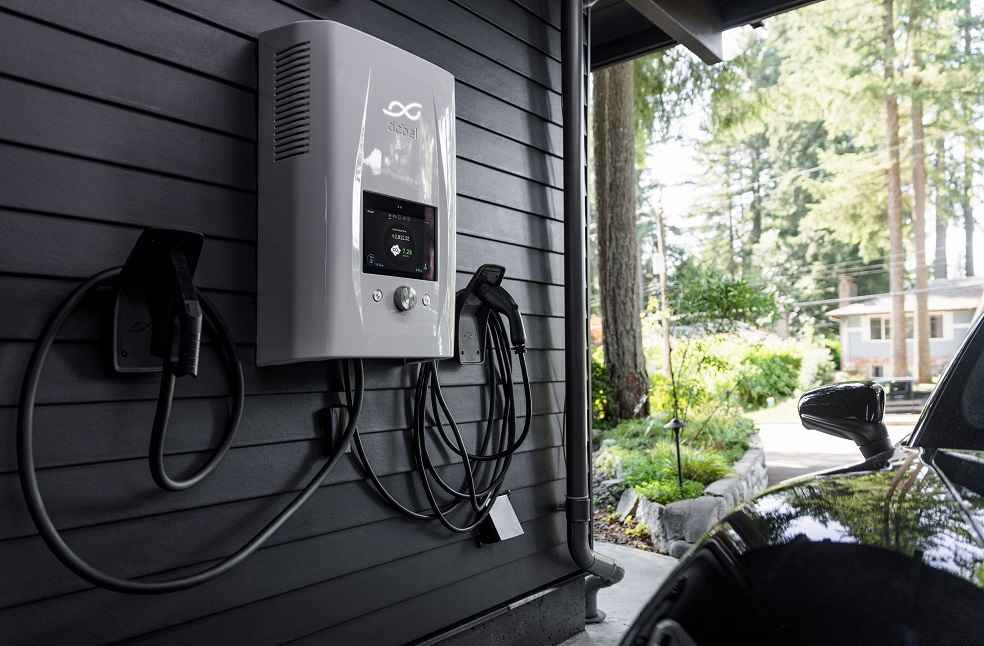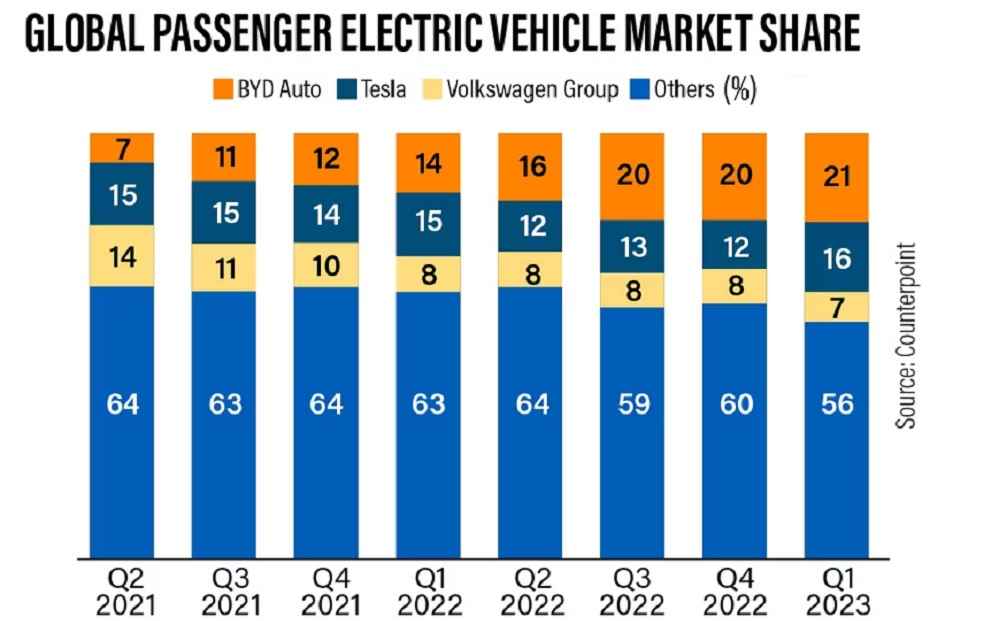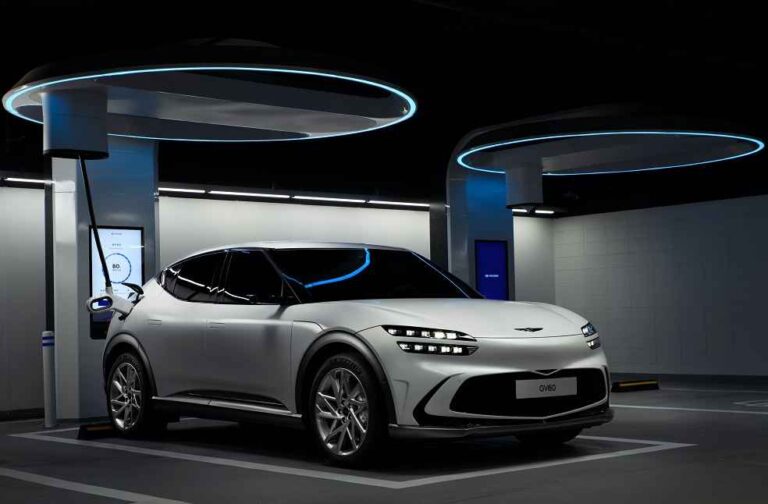The United States has witnessed a surge in its electric vehicle (EV) market, surpassing Germany to become the second-largest EV market worldwide, trailing only China, as revealed in a recent report. With an annual spike of over 79% in EV sales during the first quarter, the US has proven its growing commitment towards environmentally friendly transportation.
The report, released by Hong Kong-based research firm Counterpoint Research, credits this robust growth in the Q1 period to an increasing consumer preference for eco-friendly driving options and the introduction of the government’s tax credit subsidy. Battery EVs took the lion’s share, constituting nearly 81% of total passenger EV sales in the US, with plug-in hybrids accounting for the remainder.

Abhik Mukherjee, research analyst at Counterpoint, observed that the US economy’s signs of recovery, accompanied by decreasing inflation and improving consumer sentiment, have contributed significantly to this surge. He highlighted the introduction of the EV tax credit of up to $7,500 as a decisive factor for the uptick in EV sales.
Eligible models for the tax credit span across Tesla, GM, Ford, Stellantis, Rivian, and Volkswagen. Despite this inclusive initiative, brands like Hyundai, Nissan, BMW, Audi, and Volvo did not make the eligibility cut due to the stringent conditions set by the US government.

Tesla’s strong performance in the Q1 period also attracted attention as the EV giant outperformed the combined sales of 18 other automotive groups, which collectively account for 34 brands in the US. Tesla’s Model Y led the charge, earning the title of the best-selling EV model.
Counterpoint’s forecast suggests that if the US economy continues to mend, EV sales might touch an impressive 1.5 million units this year. “Government policies announced last year are proving beneficial for the auto industry, particularly the EV sector,” said Jeff Fieldhack, research director at Counterpoint. He added that tax credits for both new and used EVs, investments in the EV battery supply chain, an expanding network of EV charging stations, and the establishment of battery recycling plants nationwide are all contributing to this sales boost.
 At a global scale, EVs comprised one in every seven cars sold during Q1, according to a separate Counterpoint report. End-of-year sales predictions estimate the total to exceed 14.5 million units.
At a global scale, EVs comprised one in every seven cars sold during Q1, according to a separate Counterpoint report. End-of-year sales predictions estimate the total to exceed 14.5 million units.
China’s BYD Auto took a significant slice of the global passenger EV market share in Q1, with 21%, following its expansion in major European countries. Meanwhile, Tesla, headquartered in Texas, captured almost 16% of the market share with a record number of 422,000 deliveries in the first quarter.
The US EV market received an additional push as General Motors and Ford, two of the country’s major car makers, agreed to use Tesla’s charging network, potentially setting Tesla Superchargers as an industry standard across the nation.
OBSERVATION: India’s Mahindra Injects $2.12B: Targets Big Evolution





